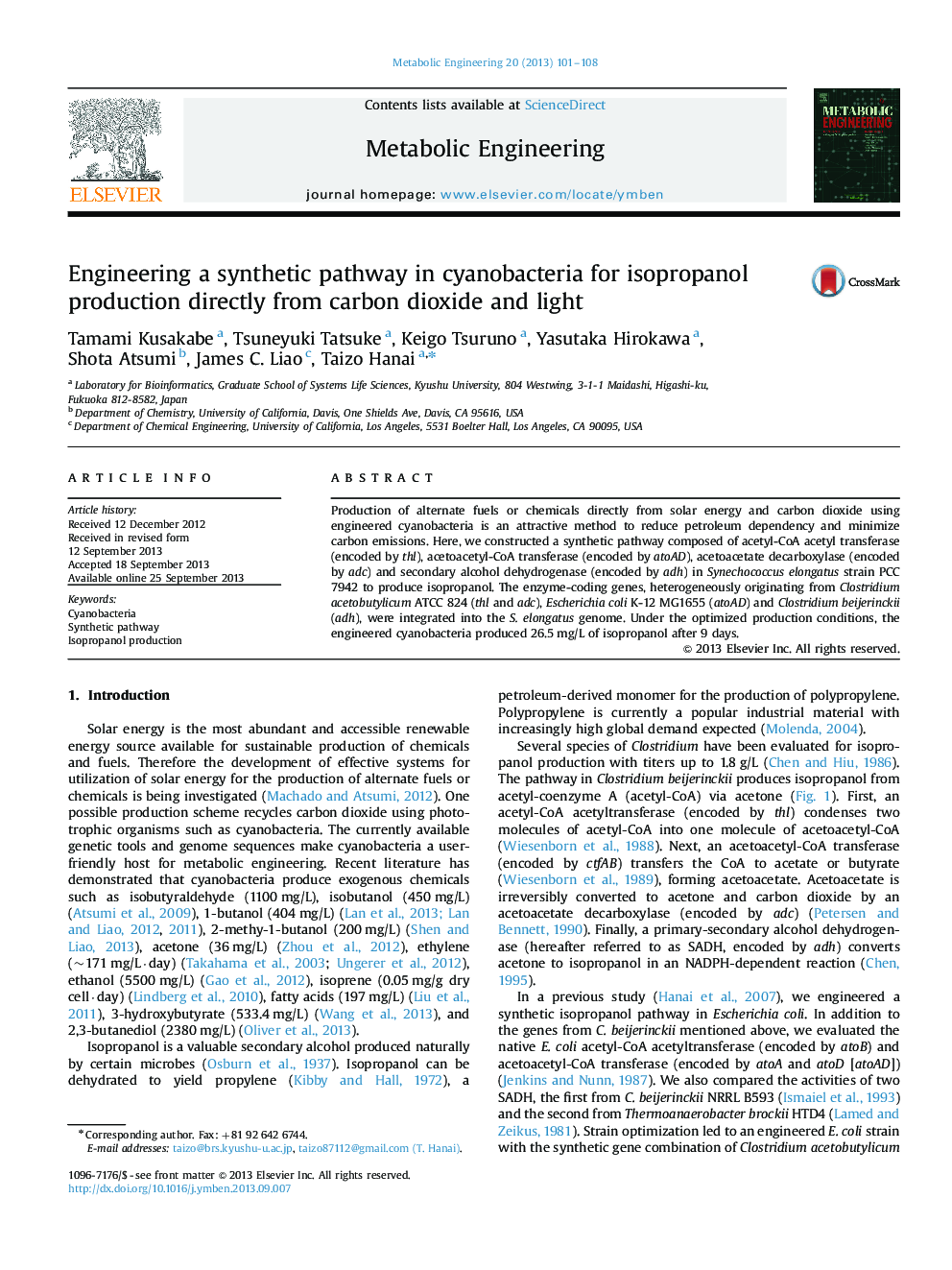| Article ID | Journal | Published Year | Pages | File Type |
|---|---|---|---|---|
| 6494692 | Metabolic Engineering | 2013 | 8 Pages |
Abstract
Production of alternate fuels or chemicals directly from solar energy and carbon dioxide using engineered cyanobacteria is an attractive method to reduce petroleum dependency and minimize carbon emissions. Here, we constructed a synthetic pathway composed of acetyl-CoA acetyl transferase (encoded by thl), acetoacetyl-CoA transferase (encoded by atoAD), acetoacetate decarboxylase (encoded by adc) and secondary alcohol dehydrogenase (encoded by adh) in Synechococcus elongatus strain PCC 7942 to produce isopropanol. The enzyme-coding genes, heterogeneously originating from Clostridium acetobutylicum ATCC 824 (thl and adc), Escherichia coli K-12 MG1655 (atoAD) and Clostridium beijerinckii (adh), were integrated into the S. elongatus genome. Under the optimized production conditions, the engineered cyanobacteria produced 26.5Â mg/L of isopropanol after 9 days.
Keywords
Related Topics
Physical Sciences and Engineering
Chemical Engineering
Bioengineering
Authors
Tamami Kusakabe, Tsuneyuki Tatsuke, Keigo Tsuruno, Yasutaka Hirokawa, Shota Atsumi, James C. Liao, Taizo Hanai,
